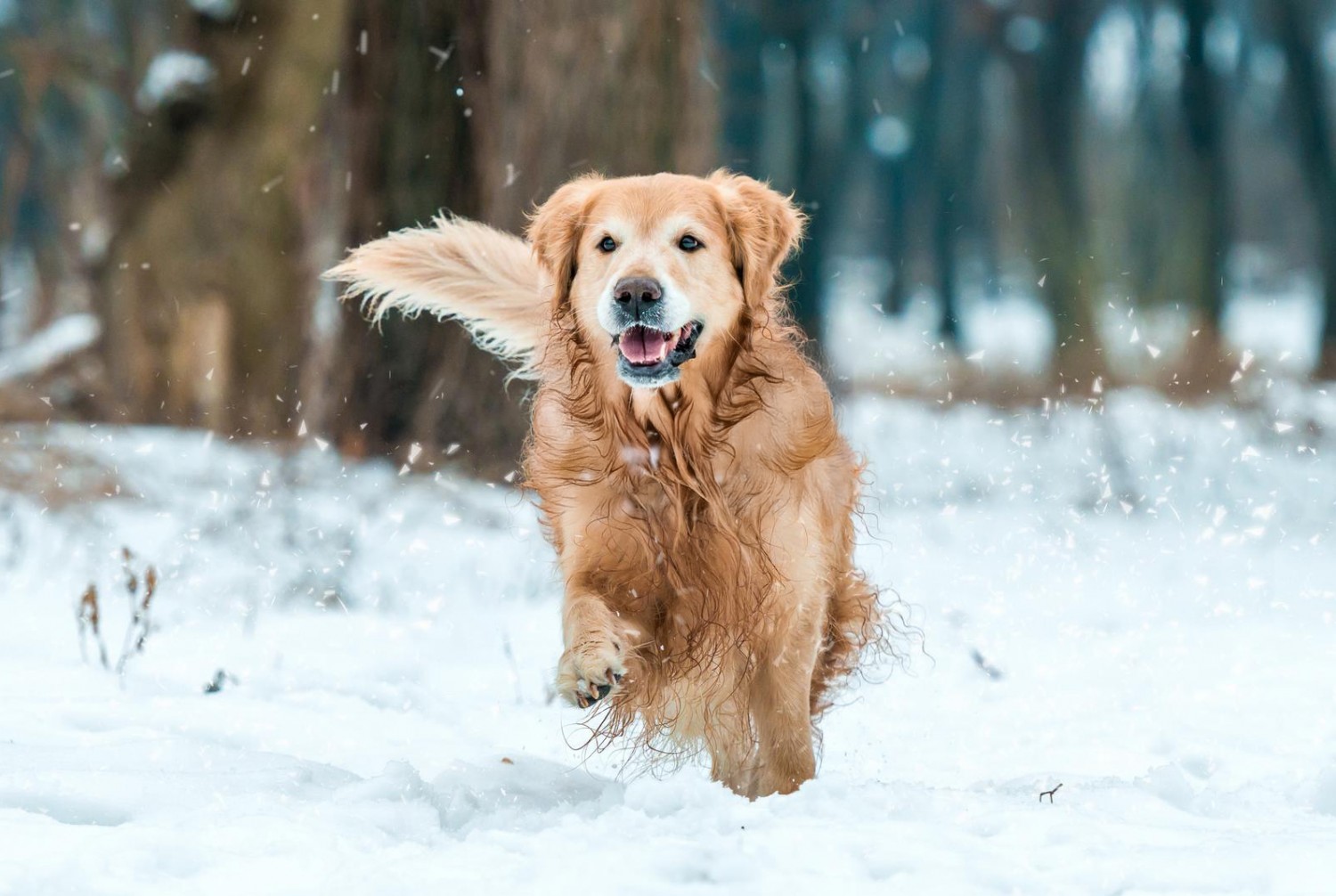|
Ask the Vet - Winter Safety for Pets Edition

Winter Safety for Pets
This morning we received a video of Marco, a little dog who was rescued from Florida only 5 weeks ago, racing around in the snow having the time of his life. Marco was found abandoned in Georgia with a spinal injury. He was rescued by Little Paws Big Hearts Pekingese Rescue, and because of his spinal injury, he cannot use his hind legs. Luckily, with some special equipment and a loving new home, he is now in Maine enjoying winter with the rest of us! Because he is disabled, his foster mom was asking about winter safety tips, and we realized most of the hazards are the same for all pets, disabled or not.
For all it’s beauty, winter is not easy, and it can be especially hard on our four legged family members. With ice, plunging temperatures, and increased darkness, winter can pose serious threats to our pet’s health.
Here are a few things to remember as we head into the coldest part of the year:
Ice is as dangerous for pets as it is for us, and when a dog races off across the ice and snow at top speed, there is a lot of potential for injury.
The most common injuries we see from ice run the gamut from soft tissue injuries and broken nails, to broken bones, torn cruciate ligaments and back injuries. It is also common for dogs to cut their paws on ice shards this time of year. Check your pet’s pads frequently for dryness, cracking and cuts. Boots can protect paws if the dog will wear them, but if that is not an option, try Musher’s Secret, a salve that Sled Dog owners use to protect their dogs’ feet. It is easy to apply and can be purchased at most pet stores.
For smaller or older dogs, spread straw over the ice and snow in their yard to protect their feet.
Buy a pet safe de-icer for your home, and be very careful when walking by commercial properties. Many de-icers are toxic and can burn pet’s feet. Remember to wipe down paws, legs and belly when you come in from walks to remove any toxic chemicals before they have a chance to lick them off.
Be seen! Short winter days mean we are often walking our dogs after dark. In fact, most pedestrian road traffic accidents occur this time of year. Collar and leash reflectors and safety lights help motorists see you and your pets.
Hypothermia
Not all fur is created equal. Some breeds have 3 layers of fur which helps insulate them, but many breeds were bred to live in warmer environments, with hair coats that do not keep them warm. It is a common misconception that a pet’s fur is all they need in the winter. Just like humans, dogs and cats are susceptible to frostbite and hypothermia. Wearing coats and limiting time outside when the temperature drops below freezing is as important for them as it is for us.
Clean up any anti freeze spills immediately! Antifreeze has a sweet flavor and is highly toxic to animals.
And finally, Be Prepared! Winter weather can cause power outages and car accidents. Remember your pets when putting together disaster and emergency kits, including food and medications they will need, and keep ID tags and microchips up to date in case you get separated.
Link to Little Paws Big Hearts Pekingese Rescue is here: Little Paws Big Hearts
Written by Robin Elliott
Send your questions to:
Dr. Ginger Browne Johnson | Veterinary and Rehabilitation Center of Cape Elizabeth
EMAIL - (attn: Ask the Vet)
| 
